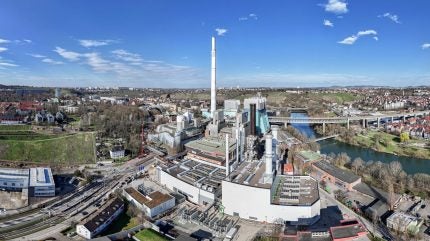
EnBW has commissioned a hydrogen-ready gas turbine power plant at Stuttgart-Münster, as part of the company’s commitment to decarbonisation and grid stability.
The plant serves as a model for future projects as southern Germany faces a growing need for flexible power solutions to balance renewable energy sources.
The opening marks a milestone amidst extensive policy discussions regarding the legal framework for financing the urgently required investment in dispatchable power plant capacity,
EnBW CEO Georg Stamatelopoulos stated: “The power plants needed for the energy transition cannot be financed by the market alone. This is why the German government needs to create a framework of regulatory incentives for more investment as part of its programme for the first 100 days in power.”
The Stuttgart-Münster site, traditionally focused on waste incineration, is undergoing significant changes.
The existing combined heat and power (CHP) plant comprises a hard coal-fired power plant, a waste incineration plant and three steam turbines.
The modernised site now features a new gas turbine plant with a gross electrical output of 114MW, including waste heat and hot water boilers.
The CHP plant caters to both base load and peak load supply, providing Stuttgart with 124MW of electrical energy and 370MW of thermal energy.
The existing coal-fired unit and fuel oil-fired gas turbines will be decommissioned by spring 2026, aligning with Stuttgart’s goal of achieving net zero by 2035.
The hydrogen-ready plant is crucial for expanding renewable energy, offering flexibility to quickly respond to grid fluctuations.
EnBW is also converting its coal-fired sites in Altbach/Deizisau and Heilbronn to hydrogen-ready gas-fired power plants.
This initiative is part of EnBW’s broader strategy to decarbonise its power plant portfolio, involving a total capacity of 1.5GW and an investment of €1.6bn ($1.8bn).
In 2024, EnBW also announced plans to equip its power plant site in Marack, Germany with a 100MW battery storage system.
The 100 megawatt hours battery facility will help stabilise the southern German electricity grid rather than supply power directly to households.



